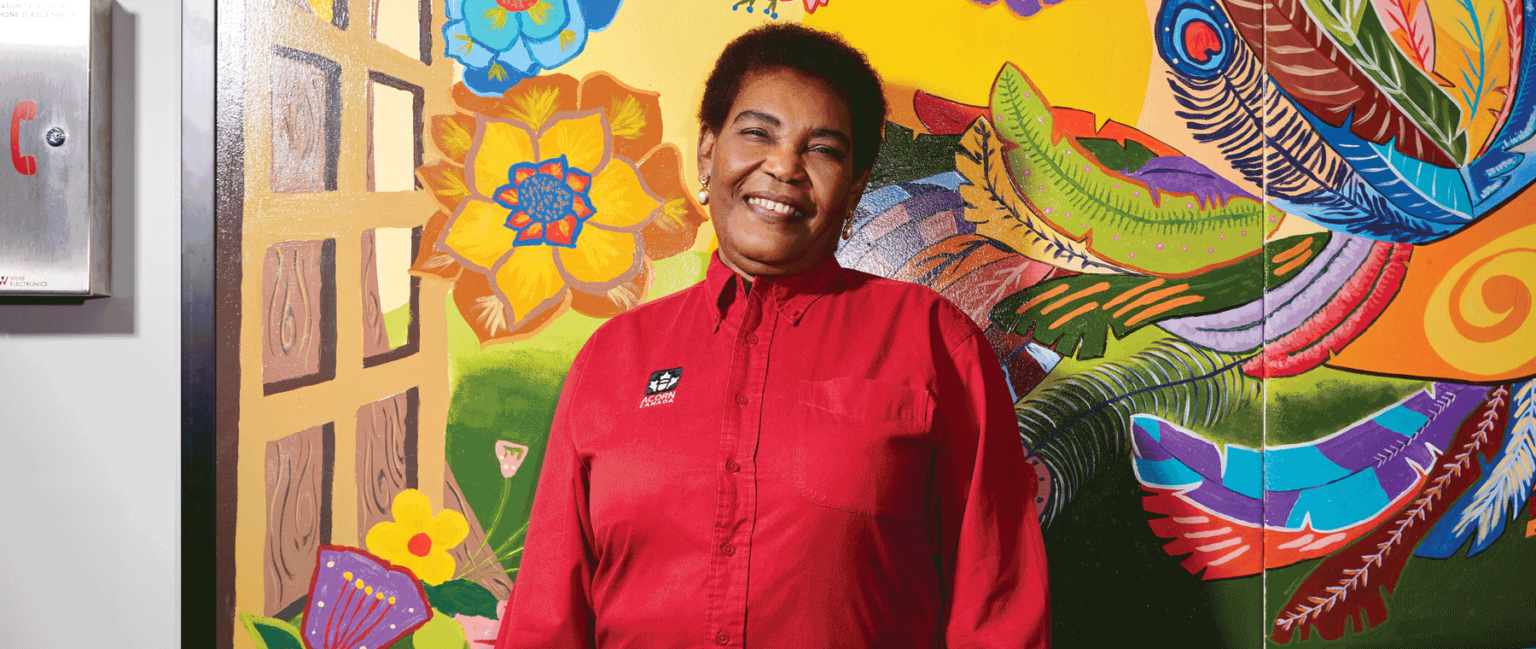Ottawa Magazine: “My neighbours are scared” – ACORN’s Marie Lourdes Garnier on reno-victions, rent banks, and political will
Posted June 3, 2021
Posted June 3, 2021
 It has been a year since city council declared a housing and homelessness emergency, and the pandemic has only exacerbated the crisis. Here, we talk with Marie Lourdes Garnier, a leader with Acorn, a national network of organizations that lobbies for social and economic justice. Garnier says the problem isn’t a lack of awareness but a lack of political will among the city’s decision makers.
It has been a year since city council declared a housing and homelessness emergency, and the pandemic has only exacerbated the crisis. Here, we talk with Marie Lourdes Garnier, a leader with Acorn, a national network of organizations that lobbies for social and economic justice. Garnier says the problem isn’t a lack of awareness but a lack of political will among the city’s decision makers.
How did you get involved with Acorn?
I first got involved in Montreal in 2012. In September 2020, I was elected to Acorn’s national board as the representative for Ottawa. I used to be a part of social-justice movements in Haiti, and ever since working with Acorn here, I feel better. The people that Acorn represents, whether they are seniors or low-income, have the right to live like any other citizen. Especially in Canada, where we have some of the best living conditions in the world.
Have you been able to work through the pandemic?
Before the pandemic, I worked on call at a child-care centre, but once the pandemic hit, I was no longer getting shifts — because of my age and my health situation, I am at higher risk for COVID-19. So it has been very difficult because I cannot work but I have to pay the same rent, and my cost of living — for medications, vitamins, trying to buy healthy food — is the same.
I am not alone. Other people in my building [an Ottawa Community Housing building for seniors] are going through the same thing. People are receiving eviction notices, and my neighbours are scared. We are being harassed for rent payments during COVID. It’s added stress and pressure during an already stressful time.
Have you ever had to ask for help with rent?
I was late for one month’s rent after I had eye surgery. I didn’t try to ask for help — I didn’t know exactly what I would need to do. Municipal rent banks exist in other cities in Ontario, and it should be part of a long-term strategy to prevent homelessness. Acorn has been calling on the city of Ottawa to offer non-repayable grants to tenants during the pandemic so that they can pay first and last month’s rent and avoid eviction. Currently, the city does offer some financial assistance for low-income tenants, but the income cut-off to qualify is very, very low.
What is missing from the conversation around affordable housing?
The pandemic has made more people realize that housing and homelessness are huge issues, but we need more than conversations — we need action. The provincial ban on evictions is almost over, and evictions have still been happening throughout the pandemic. It’s only going to get worse. There is a lot that the city can do. More needs to be done about real estate investment trusts — corporate landlords continue to buy low-cost housing and turn it into luxury housing. We saw this with Herongate. We need strong inclusionary zoning, and we need to prevent “reno-victions” to prevent the loss of affordable housing. A rent bank would help, as would inclusionary zoning.
At this point, affordable-housing issues aren’t just affecting low-income people, but middle-income people as well. City council says they sympathize. The only thing that is stopping us from progress on these issues is the lack of political will.
***
Article by Katie Shapiro for Ottawa Magazine
